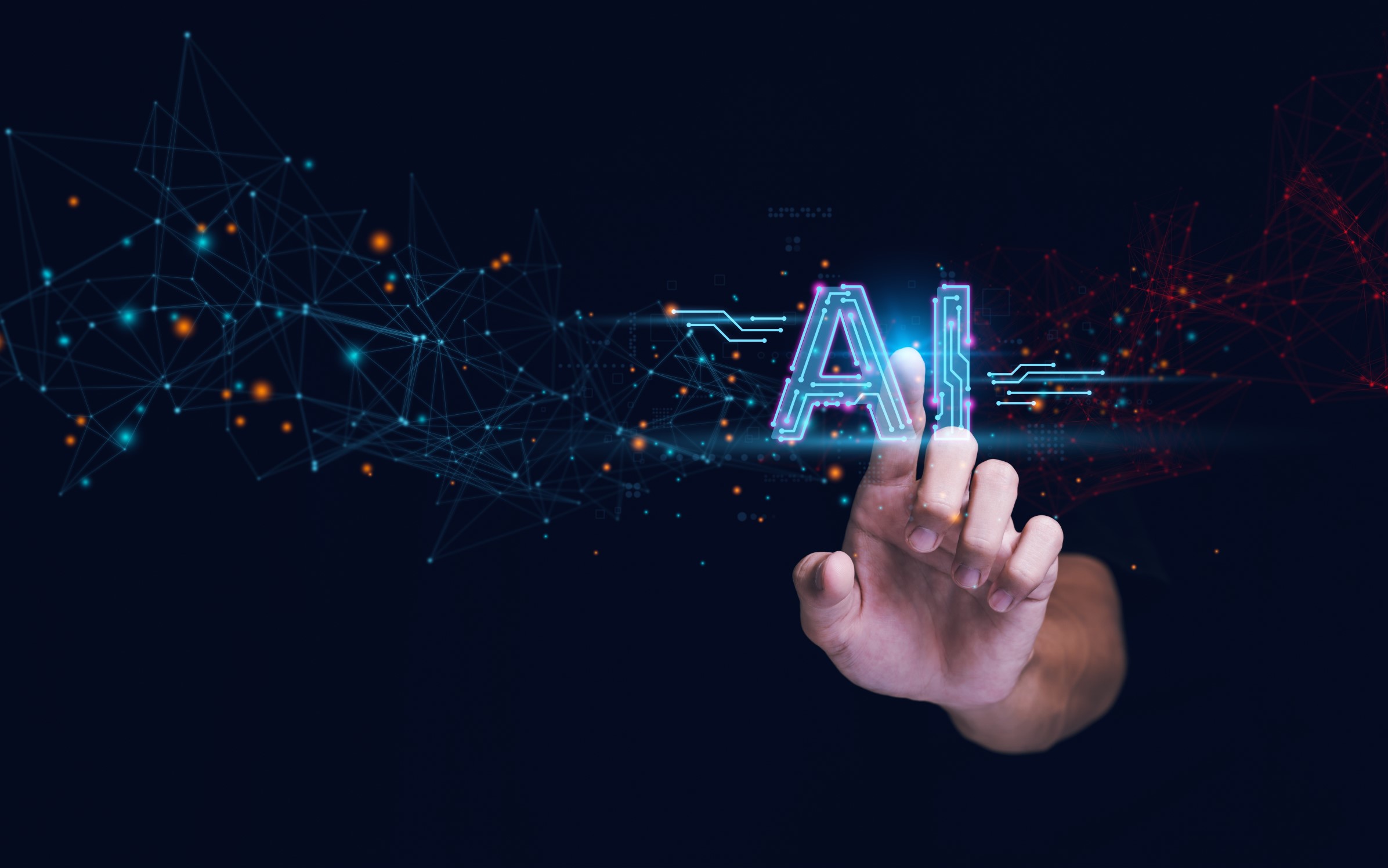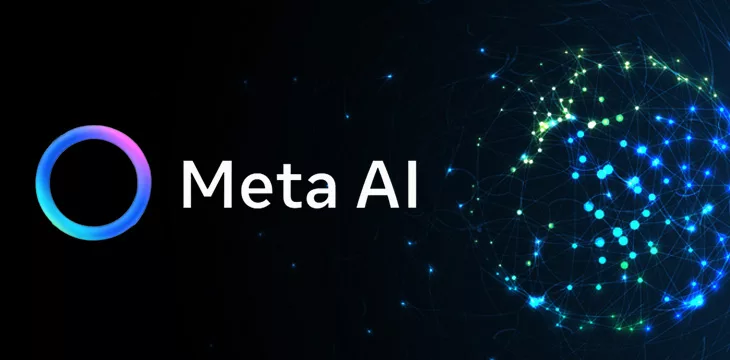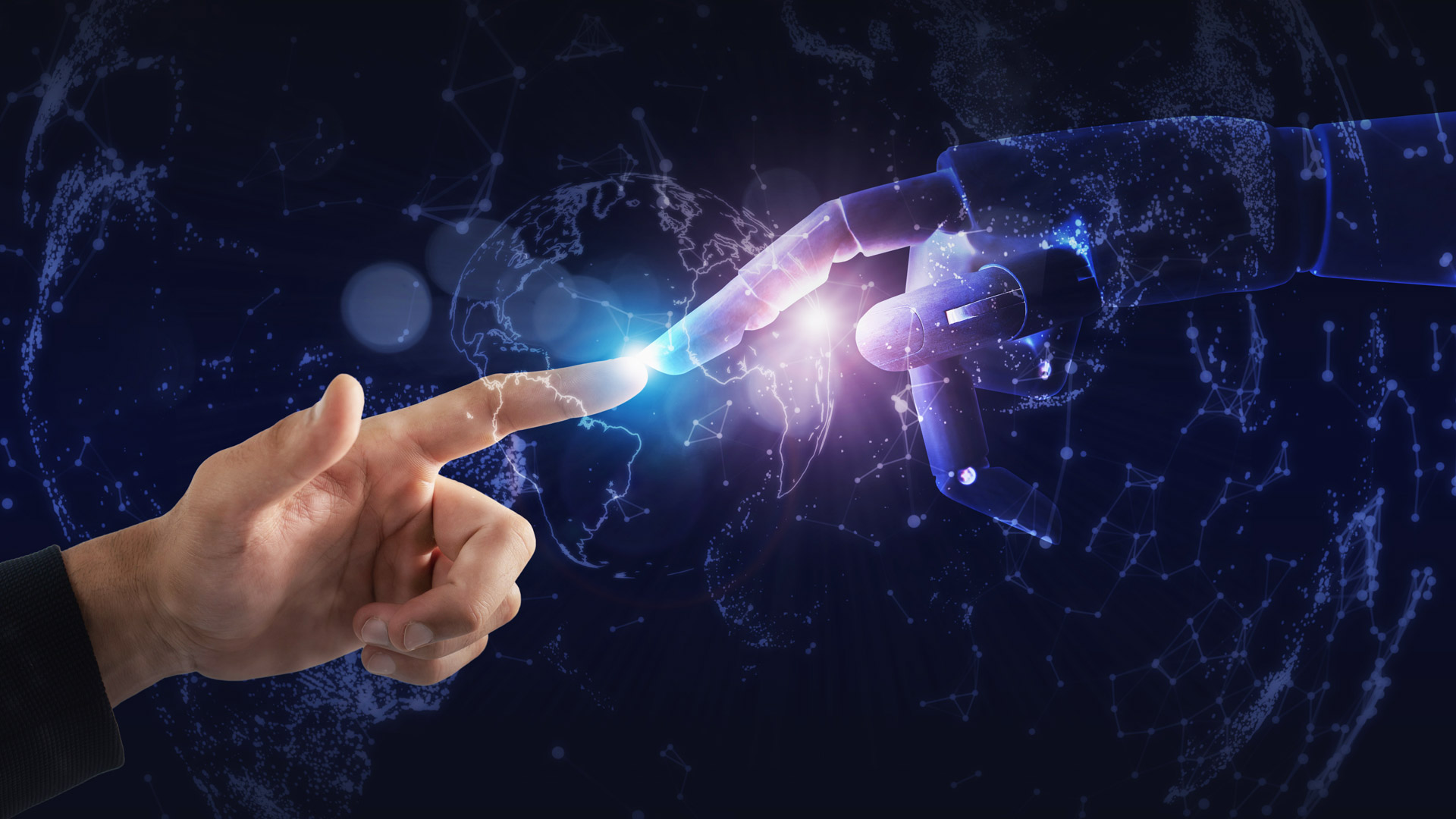
Subscribe to our free Newsletter
💌 Stay ahead with AI and receive:
✅ Access our Free Community and join 400K+ professionals learning AI
✅ 35% Discount for ChatNode
Welcome to The AI Report!
.png)

AI News, Views, and Moves: What You Need to Know
This blog reveals the general news, views, and trends that are currently sweeping the AI industry


The AI landscape transforms daily, creating a complex web of breakthrough innovations, regulatory challenges, and societal debates that reshape how we work, create, and solve problems. This comprehensive analysis of what's going on in the world of AI reveals a field moving at unprecedented speed, where major tech partnerships emerge overnight and safety concerns spark industry-wide discussions.
Recent developments signal a fundamental shift in AI's role across society. The AI Report, which curates information from peer-reviewed research, official company announcements, government regulatory bodies, and established industry sources to deliver daily AI news and insights to over 400,000 newsletter subscribers, recently highlighted how Anthropic's partnership with Apple marks a significant move toward integrating advanced AI models for coding tasks and software development. This collaboration represents the kind of strategic alliance that's becoming increasingly common as companies race to embed AI capabilities into everyday tools.
However, the current state of AI isn't uniformly positive. Concerns over Google's AI safety regression recently made headlines, potentially impacting trust and reliability across the industry. These developments underscore why staying informed about AI technology developments matters more than ever. The balance between innovation and responsibility continues to define the sector's trajectory, with each breakthrough accompanied by questions about implementation, ethics, and long-term consequences.
The rapid pace of change means that what seems revolutionary today becomes standard practice tomorrow. Organizations worldwide are grappling with how to harness AI's transformative potential while addressing legitimate concerns about bias, privacy, and employment impacts.
Understanding these dynamics isn't just important for tech professionals – it's essential for anyone whose work or daily life intersects with digital tools and platforms.
Current and Emerging Trends in AI

Significant Advancements in AI Technologies
AI systems have achieved remarkable performance improvements across demanding evaluation benchmarks in the past year. Performance scores rose by 18.8%, 48.9%, and 67.3% ,respectively, on MMMU, GPQA, and SWE-bench benchmark tests, reflecting accelerated optimization and capability growth that's reshaping what's possible with machine intelligence.
Current research has produced increasingly sophisticated models capable of handling multimodal inputs seamlessly. These systems process text, images, audio, and video simultaneously, breaking free from the single-format constraints that limited earlier generations. Google's recent launch of major new AI features exemplifies this trend, pushing the boundaries of what mainstream users can achieve with AI-powered tools.
Microsoft's introduction of Knowledge Base-augmented Language Model (KBLaM) in March 2025 represents another significant breakthrough. This approach encodes structured external knowledge directly within language models without requiring retraining, improving accuracy and reducing hallucinations by allowing dynamic knowledge updates. Such innovations address one of AI's persistent challenges – maintaining factual accuracy while operating at scale.
The emergence of "Deep Think" mode in Google's Gemini 2.5 Pro demonstrates how AI development increasingly focuses on enhanced reasoning capabilities. These systems function more like human thought partners rather than simple information retrieval tools, using cognitive modeling and parallel reasoning to tackle complex problems that previously required extensive human intervention.
Impactful AI Applications Across Industries
Healthcare stands as perhaps the most dramatic example of AI's real-world impact. FDA approvals for AI-enabled medical devices surged from just six in 2015 to 223 in 2023, demonstrating rapid adoption in critical care settings. These tools assist with diagnostics, treatment planning, and drug discovery, fundamentally changing how medical professionals approach patient care.
Autonomous transportation continues expanding its footprint, with Waymo now providing over 150,000 autonomous rides weekly and Baidu's robotaxis serving multiple Chinese cities. These deployments move AI from theoretical capability to practical utility, affecting millions of daily commutes and reshaping urban mobility patterns.
Business adoption has accelerated dramatically, with 78% of organizations reporting AI use in 2024, up from 55% in 2023. This surge reflects AI's transition from an experimental technology to a mainstream business tool. Companies across sectors are discovering how AI enhances decision-making, automates routine tasks, and uncovers insights from vast datasets that would overwhelm human analysts.
The creative industries are experiencig both opportunityies and disruption as AI generates new forms of media and art. From music production to film creation, artificial intelligence tools enable artists to explore previously impossible creative territories while simultaneously raising questions about authorship, compensation, and the value of human creativity in an automated world.
Controversies and Challenges in AI Development

Ethical Concerns and AI Bias
AI bias represents one of the most pressing challenges facing the industry today. Recent data reveals alarming trends in both the prevalence and impact of bias in business applications. 60% businesses using AI aren't developing ethical AI policies, and 74% fail to address potential biases, according to data collected in May 2025.
The scope of bias extends across critical sectors and manifests in concerning ways. Research shows that six out of eight publicly available facial-image-datasets contain over 80% light-skinned faces, and six include more male than female images, according to an IBM study on facial diversity. These imbalances in training data create systems that perform poorly for underrepresented groups.
Legal consequences are mounting as organizations grapple with bias-related issues. The AI Litigation Database from George Washington University's Ethical Tech Initiative has recorded more than 100 AI-related lawsuits currently on legal dockets across the U.S., many of which concern algorithmic bias and data privacy violations. These cases demonstrate that AI bias isn't merely a theoretical concern but a real measurable issue, with real legal ramifications.
Despite widespread AI adoption, the response to bias concerns remains inadequate. Nearly 25% of business owners have expressed concerns about AI, with bias being a key challenge that business leaders recognize needs addressing in 2025.
Regulatory Issues and Data Privacy
AI regulation went through some dramatic shifts in early 2025, particularly in the United States where policy approaches changed significantly. President Trump's executive order "Removing Barriers to American Leadership in AI," which was signed on January 23, 2025, marked a fundamental departure from previous administration policies. The order aims to sustain America's global AI dominance by prioritizing "human flourishing, economic competitiveness, and national security" while removing (what the administration considers) barriers to American innovation.
This regulatory shift eliminates mandatory federal red-teaming, pre-deployment filing, watermarking, model cards, incident reports, and bias audits that were all previously required for AI systems. The executive order also directs the development of a new Artificial Intelligence Action Plan within 180 days and seeks to remove "ideological bias or engineered social agendas" from AI systems.
Meanwhile, the European Union continues implementing its comprehensive AI Act, which became effective on August 1, 2024, though most provisions won't be enforced until August 2, 2026. This legislation employs a risk-based framework that prohibits certain "unacceptable" AI practices outright, imposes strict requirements on "high-risk" AI systems, and requires providers to register their systems and obtain CE certification.
The contrast between approaches creates a fragmented global regulatory landscape. Companies operating internationally must navigate often conflicting requirements across jurisdictions, creating compliance burdens and legal uncertainty that affects innovation strategies and market deployment decisions.
The Debate Over AI's Impact on Employment
Employment concerns dominate public discourse about the future of AI, with valid arguments on multiple sides of the debate. The transition from generative AI to agentic AI has only intensified these discussions. 37% of IT leaders surveyed believe they have already integrated some form of agentic AI, while 68% expect to implement it within the next six months. These agentic systems perform tasks independently, setting their own goals and making complex decisions with minimal human intervention.
Labor unions and industry groups are continuing to engage in ongoing discussions about fair pay, working conditions, and the need for upskilling to adapt to an AI-driven workforce. These conversations reflect genuine uncertainty about how rapidly AI capabilities will expand and which jobs face displacement risk, particularly as agentic systems become more and more capable of independent decision-making and complex task execution.
The conversation extends beyond simple replacement scenarios to consider how AI can enhance human abilities rather than replace them entirely. Software developers, for example, are increasingly acting as data scientists, while AI enhances, rather than replaces, human talent across various engineering tasks. This evolution requires new skills and creates different types of work relationships between humans and machines.
Spotlight on Leading AI Innovations

Pioneering AI Models and Frameworks
Apple's launch of "Apple Intelligence" at WWDC 2025 marked their major entry into consumer AI, emphasizing privacy by running generative models directly on devices rather than in the cloud. Key features include Genmoji for custom AI-generated emojis, Visual Intelligence for photo analysis, and advanced writing tools integrated across Apple's ecosystem. This approach addresses privacy concerns while delivering sophisticated AI capabilities to millions of users.
OpenAI's release of agent development tools in March 2025, including the Responses API and open-source Agents SDK, aims to democratize access to advanced AI capabilities. These tools help developers build AI agents that can complete complex, multi-step tasks while emphasizing safety and reliability. The focus on democratization reflects the industry's recognition that the benefits of AI must extend beyond just the major tech companies.
Chinese AI firm, Alibaba, unveiled an AI model which it claimed outperformed DeepSeek-V3, one of the worlds most advanced reasoning models, with improved efficiency and accuracy for enterprise applications. Their open-sourcing of Qwen2.5-Omni makes advanced multimodal AI capabilities more accessible to developers worldwide, continuing the trend toward broader AI accessibility.
Google's Gemini 2.5 Pro showcases dramatic improvements, with huge performance score increases from its first-generation models. Powered by seventh-generation "Ironwood" TPUs delivering 10x performance improvements, the system processes 42.5 exaflops compute per pod. These advances represent the kind of exponential improvement that keeps pushing AI capabilities into new territories.
Tech Giants and Start-ups Pushing AI Boundaries
The competitive landscape reveals intense rivalry between established players and newcomers that are accelerating the pace of innovation. Major tech companies are investing heavily in AI research and product development, often setting industry standards and influencing regulatory debates. Their endless pools of resources enable them to complete long-term research projects and large-scale deployments that smaller companies and start-ups simply cannot match.
However, start-ups do play a crucial role in bringing novel ideas to market, as they can experiment with cutting-edge approaches and specialized applications that larger companies might overlook.
This dynamic creates a collaborative ecosystem where breakthrough ideas can emerge from unexpected sources and find pathways to widespread adoption.
Microsoft Research's AI2BMD system for protein simulation represents the kind of specialized innovation that can transform entire fields. By allowing researchers to explore complex biomolecular science problems with unprecedented speed and precision, this technology promises to accelerate drug discovery, protein design, and enzyme engineering in ways that were previously impossible.
Competition and collaboration between sectors faces increasing scrutiny over the societal impacts, with growing attention on responsible AI development and deployment. Both established companies and start-ups must balance innovation speed with ethical considerations, creating new frameworks for evaluating and implementing AI technologies.
Future Outlook: The AI Horizon

Potential for AI to Solve Global Problems
AI's promise for addressing major global challenges extends from healthcare disparities to climate change and resource management. By analyzing complex data and generating insights, artificial intelligence can (and does) contribute to solutions for things like diagnosing diseases, responding quicker to natural disasters, and monitoring environmental changes that exceed human analytical capabilities.
The potential for AI to facilitate scientific discovery and policy-making drives future research and investment priorities. Climate modeling, pandemic response planning, and resource optimization represent areas where AI's data processing capabilities can inform decisions affecting millions of people. These applications require careful validation and human oversight but offer unprecedented opportunities for positive impact.
The democratization of AI reasoning capabilities means that powerful analytics become accessible to broader audiences, not just experts. This accessibility enables more people and organizations to leverage AI for complex problem solving, potentially distributing benefits more widely across society and addressing problems at multiple scales simultaneously.
International collaboration is likely to become increasingly vital as global challenges require co-ordinated responses that transcend national boundaries. AI systems that can process information across different languages, cultures, and regulatory frameworks may help facilitate the kind of co-operation needed to address climate change, public health crises, and economic inequality.
Preparing for an AI-Driven World
Action models are eclipsing language models as AI transitions from being just a conversational tool to actually being able to execute tasks, representing a fundamental shift in automation capabilities. This evolution requires new approaches to education, workforce development, and social adaptation that go beyond current retraining programs.
Organizations must move past the initial excitement of large language models and generative AI, focusing on higher-value, more practical use cases that deliver significant return on investment and transform decision-making processes. This maturation requires more sophisticated evaluation criteria and implementation strategies.
Building digital literacy and fostering open dialogue remain essential steps to ensure broad participation in shaping AI's future. Educational institutions, policymakers, and industry leaders collaborate to develop strategies that maximize AI's benefits while mitigating risks. These efforts must address both technical skills and broader understanding of AI's societal implications.
Anticipating changes in workforce dynamics, legal frameworks, and social norms becomes central to preparing for a world increasingly influenced by AI. The majority of organizations and executives expect to significantly increase their AI investments over the next three years, reflecting widespread confidence in AI's transformative potential while creating pressure for thoughtful implementation approaches.
Stay Informed: Resources and Community

Top AI News Websites and Blogs
Staying current with AI developments requires accessing multiple high-quality sources that provide different perspectives on rapidly evolving developments. AIChief has earned recognition for exceptional credibility among AI professionals, offering deeply researched content with user-friendly interfaces that categorize different AI topics for easy navigation. This platform proves particularly valuable for professionals and business owners learning how AI transforms conventional workflows.
The Verge AI delivers in-depth coverage of AI advancements, combining expert analysis with accessible writing that focuses on machine learning, robotics, ethical implications, and practical applications. Their integration with the broader technology news platform provides context for how AI developments fit within larger tech trends and business strategies.
AI News operates as a dedicated platform providing daily updates, expert analysis, and comprehensive articles covering machine learning, natural language processing, and robotics. They supplement written content with webinars, podcasts, and white papers that offer insights into the latest AI research, creating multiple pathways for staying informed about industry developments.
OpenAI's official blog provides authoritative insights directly from one of the leading AI research organizations, offering primary source information about research breakthroughs and technology developments. AI Business connects the global AI community with practical insights that avoid hype and buzzwords, focusing on enterprise AI adoption through newsletters, podcasts, webinars, and research.
Podcasts and Online Forums for AI Enthusiasts
The AI Report launched "The AI Report Podcast," which features in-depth discussions with entrepreneurs, CEOs, policymakers, and industry leaders who talk about their commitment to providing deeper insights and real-world applications of AI. This format allows for nuanced conversations about AI implementation challenges, success stories, and strategic considerations.
Online forums and communities (like the AI Report's Free Community) enable enthusiasts and professionals to exchange ideas, ask questions, and collaborate on projects that advance both individual understanding and collective knowledge. These platforms have become particularly valuable for tracking emerging trends, troubleshooting implementation challenges, and connecting with peers who are facing similar opportunities and challenges.
Engaging with podcasts, communities, and forums will help individuals deepen their understanding of AI, while remaining connected to ongoing conversations that will shape AI development priorities. The diversity of perspectives available through these channels provides context for evaluating new developments and making informed decisions about AI adoption and implementation.
How to Participate in AI Expos and Conferences
AI expos and conferences serve as important venues for networking, knowledge-sharing, and showcasing new technologies that define industry directions. These events provide opportunities to learn from thought leaders, discover emerging trends, and connect with peers who face similar challenges and opportunities in their AI implementations.
Many conferences now offer virtual attendance options, broadening access for participants worldwide who cannot travel but want to engage with cutting-edge research and practical applications. This accessibility helps democratize access to industry insights while reducing barriers to participation for smaller organizations and individual practitioners.
The AI Report's expansion into live industry events demonstrates how organizations recognize the value of in-person and virtual gatherings for building community and sharing knowledge. These events create opportunities for direct interaction with innovators, researchers, and practitioners who drive AI advancement.
Participation in these gatherings supports continuous learning and fosters community among those interested in AI, creating networks that extend beyond individual events. The relationships formed at conferences often lead to collaborations, partnerships, and knowledge-sharing arrangements that benefit entire sectors and advance the field's overall development trajectory.


.png)
.png)
.png)
.png)
.png)
.png)
.png)
.png)
.png)
.png)
.png)
.png)
.png)
.png)
.png)
.png)
.png)







.png)




